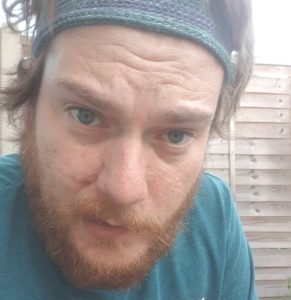Almost three years since the rescheduling of medical cannabis, disabled patients are still suffering, writes Lucy Stafford, advocacy director at PLEA (Patient-Led Engagement for Access).
In November 2018, current Health Secretary (and then Home Secretary) Sajid Javid ruled that medical cannabis would be made legally available for patients with chronic conditions.
At the time, he claimed the government had “now delivered on our promises.”
Today, the UK is the world’s leading producer of medical cannabis products, yet the overwhelming majority of eligible UK patients are still unable to access legal NHS prescriptions that could vastly improve their quality of life.
Instead, people suffering from chronic pain, Tourette’s disorder and other conditions have found themselves shackled with serious debt or even risking arrest as they attempt to seek treatment. Some patients report having to sell all possessions and even homes to fund private prescriptions.

Lucy Stafford
A new report published in the British Medical Journal (BMJ) identifies barriers to access for patients with Ehlers Danlos syndrome, as well as solutions to breaking the deadlock for patients with numerous conditions.
Javid returned as Health Secretary earlier this year. Patients and patient groups now demand that he revisit his decision on medical cannabis, and quickly address all obstacles, allowing meaningful access for the people who need it.
Disabled patients across the United Kingdom are demanding that Health Secretary Sajid Javid fully delivers on the government’s 2018 promises and makes legal medical cannabis accessible to patients with chronic and life-limiting conditions. Then Home Secretary, Javid’s November 2018 decision permitted legal prescriptions of the drug. And in these three years, the United Kingdom has emerged as the largest producer of medical cannabis, identified as such in research conducted by the United Nations.
But very little has changed for the majority of patients with chronic and life-limiting conditions. Many barriers to NHS access remain. And in fact, only three patients have been able to access ‘full spectrum’ (or ‘full plant’) medical cannabis via the NHS, since the medicine was made legal.
Kayleigh Ross, a patient working group member at PLEA, said: “The government has not ‘delivered on its promises’ as Javid stated. In 2021, this important treatment remains inaccessible to hundreds, if not thousands of people whose lives could be transformed but are instead encountering huge problems as they try and afford private prescriptions. Enough waiting. We need more than just words, we need things to change.”
BMJ Report identifies barriers to access – as well as solutions
On the 9 September 2021, the BMJ published clinical practice guidance for the provision of non-inhaled medical cannabis for patients living with moderate to chronic pain, including people with neuropathic and cancer-related pain.
This follows the publication by the BMJ in July of a new case report, highlighting the barriers which still remain for patients with chronic and life-limiting disorders, including a lack of physician knowledge on the topic and education on medical cannabis use, restrictive guidelines and cost and supply issues.
Specifically relating to Ehlers Danlos syndrome – an inherited disorder that affects the body’s tissues – the report identifies ways of breaking the deadlock for patients, with solutions that include increasing UK production of medication and bulk importation of medical cannabis from around the world.
As highlighted in the BMJ’s case report, a lack of NHS access means that UK patients using legal medical cannabis are often having to pay for expensive private prescriptions. And those that can do this will often have to borrow from friends and family, sell possessions or go into long-term debt, in order to fund their treatment.
Lara Bloom, president and CEO at The Ehlers-Danlos Society said: “We hope that this report will support clinical expertise of this treatment option and expand research into this area. It’s unacceptable that patients are forced to resort to illegal routes of access when they cannot afford private healthcare – patients need NHS access to treatment, including cannabis-based medicinal products where appropriate.”
Patients are receiving life-changing treatment, but at what cost?
Jim Finch and his wife are having to sell their family home in order to pay for an ongoing prescription that has cost upwards of thousands of pounds for just ten days worth of treatment.

Jim Finch developed Tourette’s after a serious car accident
A 2018 car accident that was no fault of his own resulted in serious injuries and trauma and left Jim with complex neurological conditions including Tourette’s Syndrome, fibromyalgia and functional neurological disorder. He went from a healthy, 29-year-old dad to being unable to walk or communicate properly and suffering dozens of fits and seizures a day.
Jim was prescribed ‘hundreds of pills’ to manage his symptoms including Tramadol, Morphine, Diazepam, Codeine, amitriptyline, Lorazepam and Sertraline, which left him (in his own words) a ‘vegetable’. Now, he uses a vape of privately prescribed medical cannabis to help control his pain, tics and seizures.
Jim said: “It has changed me from bed-bound to housebound and I can now be a proper father to my young children. Before, that simply would not have been possible. I’m as close to my old self as I have been since before the crash. There’s the injustice that people are going to prison for trying to get help for themselves.
“There’s also an injustice that people have to pay so much for private prescriptions. My partner and I sold both our cars, used all our savings and have borrowed thousands from family in the past two years. We are now having to sell my house and move in with my in-laws, along with our children to be able to continue this life-changing treatment. And all of it just so I can be present as a father.’’
Building the UK evidence base
In November 2019, the UK scientific charity Drug Science launched Project Twenty 21 – an observational study of 1,500 patients to date, which aims to create the largest body of evidence for the efficacy of medical cannabis in the UK.
The study covers a range of primary conditions, the most common being anxiety and chronic pain, and has the ultimate aim of providing enough evidence to bring about better patient access for medical cannabis on the NHS. With the help of funding from industry producers, Project Twenty21 provides patients with medical cannabis products at a capped price, whilst collecting patient data to feed the UK evidence base with the goal of influencing the NICE guidelines.
Having spent my teenage years in severe pain, dependent on opiates and a feeding tube, my quality of life has been ‘transformed’ by medical cannabis.
Now aged 21, I am one of the few patients able to legally access medical cannabis in the UK. I do this through Project Twenty 21, which provides me with a subsidised private prescription that costs £450 a month, previously having paid £1,450 each month.
Three years ago my life was a blur of excruciating pain from dislocating joints at the smallest of movements, needing support from full-time carers to even use a bedpan as I couldn’t get out of bed safely. I had countless injections of incredibly powerful opioid drugs to try and reduce my pain. They never worked and as I became weaker, the pain medications became stronger. I felt like a shell and had no hope or idea how I could keep living in that state – that’s what constant severe pain does to you.
Three years ago Sajid Javid saw the suffering of disabled people and the benefits that medicinal cannabis could bring. Thankfully, he changed the law to allow legal prescriptions. My doctor and I were thrilled. This was my last hope for a life-changing treatment, after which I would be referred to palliative care. But when my doctor wrote me such a prescription, it was denied funding and I was told I could not access the treatment on the NHS. I was devastated.
So like millions of other unwell people, I had no option but to break the law to find help. I was scammed, sent contaminated cannabis, left in vulnerable situations during drug deals and I was terrified of being caught. This was one of the lowest points of my life.
Today, as I am fortunate enough to be supported by my family to have a legal prescription, my health has never been better or more stable. I can now walk, sit, live independently, focus, study for a degree and live a generally normal life, away from hospitals and endless medical interventions. But funding life-saving medication is unsustainable as a disabled student on a very limited income, even at the heavily subsidised rate I receive as a patient with Project Twenty21. And I live in fear of losing access and getting sick again.
The current situation helps no one. Established medications, such as those that I was given, cost the NHS a great deal and can come with terrible side effects. The toll on the mental health of ineffectively treated chronic conditions, like my own, can make patients feel suicidal. And private prescriptions are expensive so people either can’t afford them or can be forced to choose between being in pain and being able to eat.
That’s barbaric, and something the NHS was created to prevent.
For more information visit PLEA (Patient-Led Engagement for Access)
The post “Three years on, disabled people need a solution” appeared first on Cannabis Health News.

